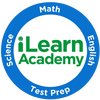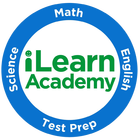|
Experts agree summer learning loss is a leading cause of the achievement gap among students. This has many parents wondering how to build learning into the family's summer schedule. On one hand, an educational family trip could help your student keep her mind engaged during the long summer months out of school. On the other hand, trudging through Gettysburg when you could be relaxing on a beach is not every parent's idea of a good time. Here's the good news: You can make any family vacation educational with the right approach. Use these tips to sprinkle in some learning alongside your fun this summer. Your children's report cards will thank you! Make a Budget Every family vacation requires a budget, and putting one together is a great way to practice math with your kids (not to mention financial skills). If you'd rather not share how much you're spending on vacation, work in percentages. Ask questions, like: What percentage of the budget should go toward food? A hotel? Activities? Will those amounts be sufficient? Here are some math skills that budgeting builds:
Finding a book that complements your vacation activities is a great way to build reading into your family's vacation planning. Camping in the Pacific Northwest? Check out a story set in nature, like My Side of the Mountain. Taking a road trip to Florida? Try the smart, coming-of-age story about Floridian preteen Sally Freedman, in Starring Sally J. Freedman as Herself. Reading the book together helps your student stay engaged. Look up new words, discuss the story's themes and ask your child to make predictions about where the story is heading. For younger children, reading books about family vacations is an excellent way to manage behavior. Use the story to talk about appropriate behavior at the beach, hotel or campfire. Tell your child what you expect from them, and reward them when they deliver. Keep a Journal
Vacation journals are not only a fun way to record family memories, they help students practice writing. Maximize the journal's skill-building potential by coming up with a writing prompt for each day of vacation. Here are some ideas to get you started:
Every destination has a history, even if it doesn't contain historical landmarks. Before you leave home, take some time to research your vacation spot's backstory as a family. A grade-level appropriate educational database is a good place to start. For elementary, try Kids InfoBits. For middle school, try Research in Context. For high school, try Student Edition. Contact your destination's local library or historical society to see if there are any family-friendly events planned during your stay. These events run the gamut from farm expos to archaeological digs. Street fairs are another engaging way to get to know the community you're visiting. Summer Learning Programs Looking for more ways to combat summer learning loss? Check out iLearn Academy's flexible summer tutoring options. Just two hours each week can help your students maintain their math and reading skills and get ahead in upcoming classes. Enroll by June 8 to save $50 on tuition and receive free weekly test prep. Call 847-834-0791 for more information or to enroll!
0 Comments
Leave a Reply. |
Categories |
We make a personal commitment to ensure each student is well-prepared for the academic school year.
Dedicated to helping your student succeed.
©
iLearn Academy 2019



 RSS Feed
RSS Feed
